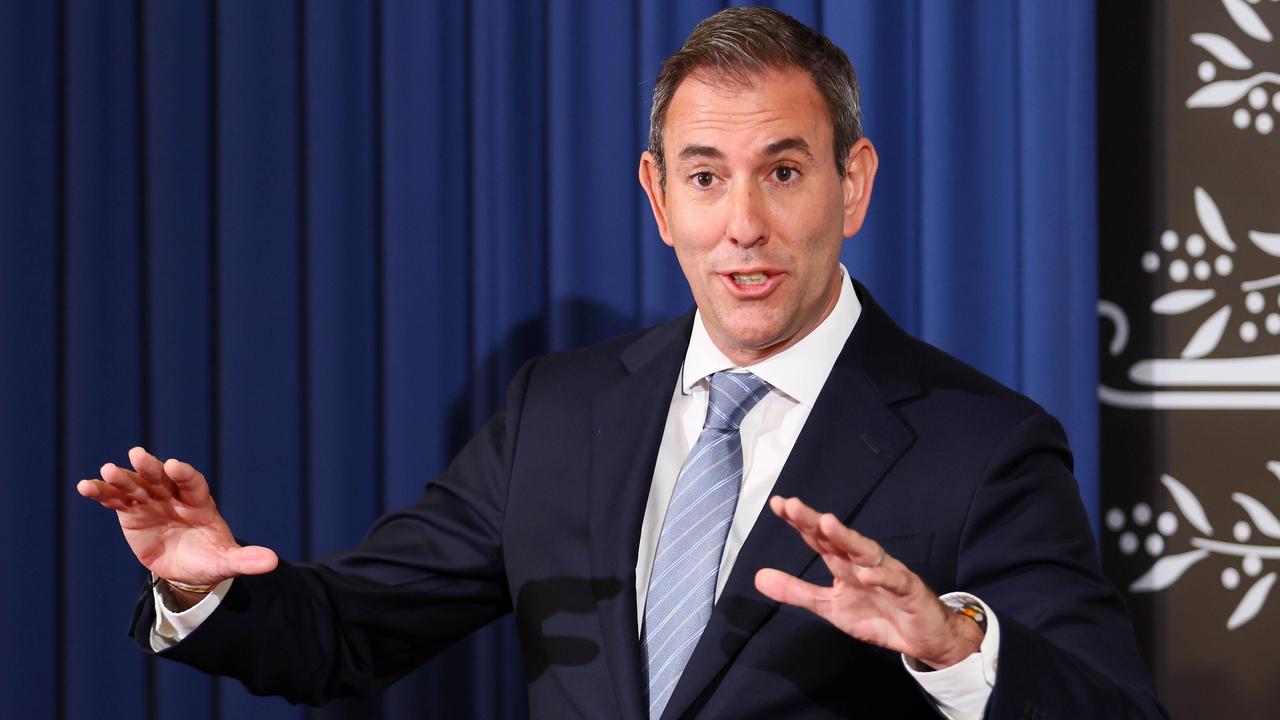Babies to get rare disease checks while the elderly will get mental health help in Budget plan
BABIES are the big winners in the health sector in this year’s Budget, in the wake of warnings they are at risk of dying before their parents. Here is everything you need to know about changes to health.
Federal Budget
Don't miss out on the headlines from Federal Budget. Followed categories will be added to My News.
A CRADLE to grave health plan outlined in the budget will see newborns given rare disease checks and a digital health record from birth while the elderly will get mental health and exercise help.
The existing paper based blue book that records a child’s growth and weight trajectory, their health milestones and immunisation will move into the 21st century to be replaced with a new digital record from the end of next year.
Experts have warned babies born today are at risk of dying before their parents because of diseases caused by diet lifestyle and the budget directs $78 million at programs in the first 2,000 days of life.
Mums will get advice on healthy diet and exercise habits during pregnancy and what to feed their babies as well as free whopping cough vaccines.
MORE: Budget winners and losers
MORE: What Budget means for you
MORE: Your five-minute Budget guide
MORE: Everything you need to know about the Budget

Under a groundbreaking $500 million genomic health program cancer patients and children with rare diseases will get access to genetic testing to help 200,000 Australians live longer.
There will be preconception screening for rare and debilitating diseases like Spinal Muscular Atrophy, Fragile X and Cystic fibrosis.
Areas with low childhood immunisation rates such as the far north coast of NSW and Sydney’s Northern beaches will be targeted and $17.5 million will be spent on maternal and infant health research.
At the other end of life elderly people living in aged care homes will for the first time be able to access mental health care under an $82 million program to be co-ordinated by local Primary Health Networks.
Older Australians living in the community who suffer social isolation will get help under a $20 million pilot program run by nurses.
With new evidence showing exercise can help with cancer and preventing dementia, the government will spend $22 million on grants to local sporting organisations who offer programs to get the over 65’s exercising more.

Older Australians will be able to access palliative care in residential aged care homes under a $32 million initiative.
A new website will provide health, employment and financial checks for those aged 45 and 65.
And $5.3 million will help develop technological solutions for people with dementia.
Under other budget measures Australians will be encouraged onto generic versions of their medicines to save $335 million under budget cuts.
New electronic prescription software will assign a person to a generic brand of medicine by default and doctors will have to override the system if they want patients to use their brand name drugs.
There will be more doctors in the bush under a new training program that will see 100 places funded in a rural generalist program that will aim to give these doctors most of their training in rural settings in the hope they remain their when they graduate.

And rural doctors will get new incentives to employ allied health practitioners like physiotherapists.
However, cutbacks to the number of overseas trained doctors allowed into Australia to save over $400 million is likely to have a big impact on doctor numbers in rural areas where over 40 per cent come from this stream.
And some general practitioners will have their Medicare rebates cut by 20 per cent unless they undertake extra training to become vocationally registered.
A series of Medicare cuts will affect people using high cost arthritis medicines called (bMARDS) and blood products with wayward doctors required to prescribe them in line with guidelines to save $77.6 million.
There will be $190 million worth of cutbacks to Medicare rebates for knee scans, spinal surgery and mesh used in gynaecological surgery.
New tests and treatments will be funded for people with cystic fibrosis, overactive bladders and men who need to preserve semen because of toxic treatments.
Over $700 million in funding has been provided for a life saving extending breast cancer medicine Kisquali bringing the cost down from $71,820 a year to just $39.40.
More than $240 million will be spent on clinical trials for treatments for rare cancers, rare diseases and diseases with unmet needs.



